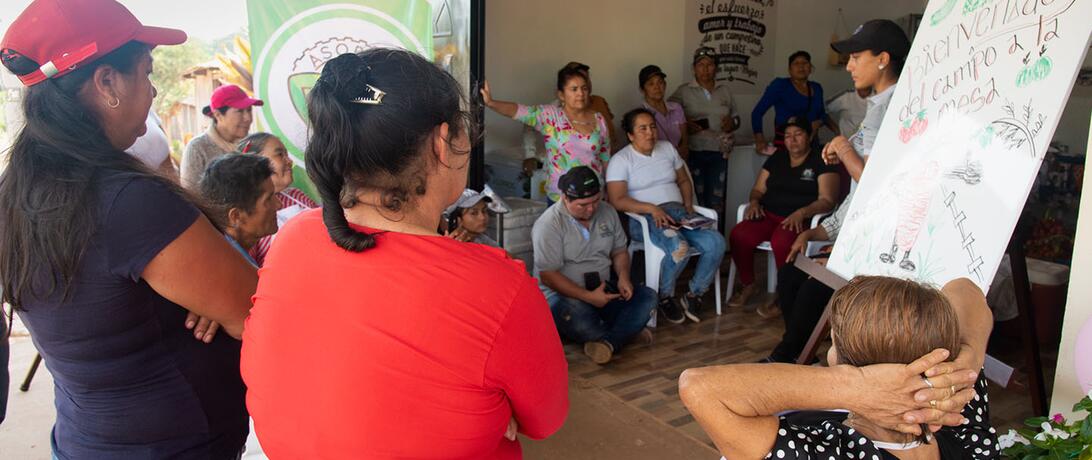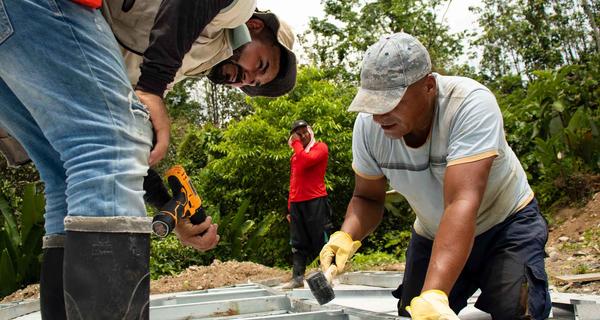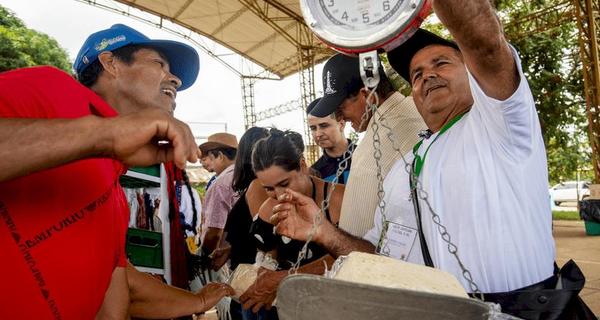
Following eight years of collaboration with peace-building communities to co-create and develop rural development and peace-building projects, One Earth Future, through the PASO Colombia program, introduces a new approach to financing projects in the territories.
For the past eight years, the One Earth Future Foundation (OEF) has been working with peace-building communities to co-create and support territorial development projects through the PASO Colombia program, in collaboration with the private, public, and international sectors. This collaborative effort has resulted in the creation of 2,712 jobs, more than $4 million in sales from productive projects, and $850,000 in savings from local food production.
Building on the trajectory and experience gained with communities, OEF launched a new approach this year to finance and support peace-oriented initiatives in Colombian conflict zones. The new model aims to strengthen value chains with regional impact that contributes to peace and territorial reconciliation, moving to a financial scheme that allows us to continue supporting peace-building through collaborative rural development, with special emphasis on financial and associative strengthening of communities, women’s financial autonomy, and economic networking capable of creating profitable and sustainable enterprises, as well as fair markets and circular economy networks.
To this end, the campesino and peace signatory organizations with which we have been working have been invited to apply for revolving funds, prioritizing two lines of action in the projects:
- Economic and social empowerment of Local Grassroots Organizations for reconciliation, resilience, and social cohesion;
- and employing inclusive market systems to stimulate the economic growth of agro-industrial production and commercialization.
This new approach preserves the method of learning by doing by providing technical, organizational, and human support tailored to each project, as well as co-creating and planning with the territory's communities. Thus, the communities with whom we have collaborated developed their proposals in a display of autonomy that demonstrates the technical and organizational strengthening achieved.
Projects under this model will consider criteria such as commitment to gender equity, environmental conservation, and collaboration with public and private partners at the local and regional level; as well as economic sustainability and contribution to the social cohesion of the communities involved.
We expect to announce the selected projects in April. We also hope that this new approach to financing initiatives will yield initial results by the end of the year. This will generate new lessons to improve this model and will allow other communities affected by violence, poverty, and inequality to benefit from these innovative practices, as well.

